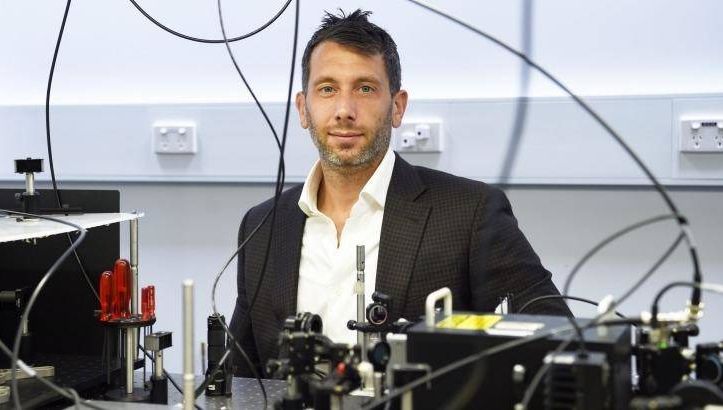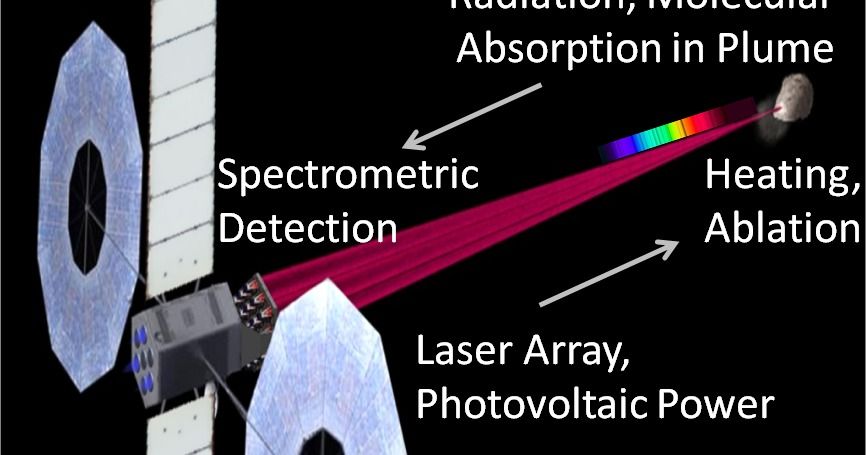California Polytechnic State University researchers propose a system capable of probing the molecular composition of cold solar system targets such as asteroids, comets, planets and moons from a distant vantage.
Their concept utilizes a directed energy beam to vaporize or sublimate a spot on a distant target, such as from a spacecraft near the object. With sufficient flux, our published results indicate that the spot temperature rises rapidly, and evaporation of materials on the target surface occurs (Hughes et al., 2015; Lubin and Hughes, 2015; Lubin et al., 2014). The melted spot serves as a high-temperature blackbody source, and ejected material creates a molecular plume in front of the spot. Molecular and atomic absorption of the blackbody radiation occurs within the ejected plume. Bulk composition of the surface material is investigated by using a spectrometer to view the heated spot through the ejected material. They envision a spacecraft that could be sent to probe the composition of a target asteroid, comet or other planetary body while orbiting the targeted object. The spacecraft would be equipped with an array of lasers and a spectrometer, powered by photovoltaics. Spatial composition maps could be created by scanning the directed energy beam across the surface. Applying the laser beam to a single spot continuously produces a borehole, and shallow sub-surface composition profiling is also possible.
Their initial simulations of laser heating, plume opacity, material absorption profiles and spectral detectivity show promise for molecular composition analysis. Such a system has compelling potential benefit for solar system exploration by establishing the capability to directly interrogate the bulk composition of objects from a distant vantage. They propose to develop models, execute preliminary feasibility analysis, and specify a spacecraft system architecture for a hypothetical mission that seeks to perform surface molecular composition analysis and mapping of a near-earth asteroid (NEA) while the craft orbits the asteroid.







